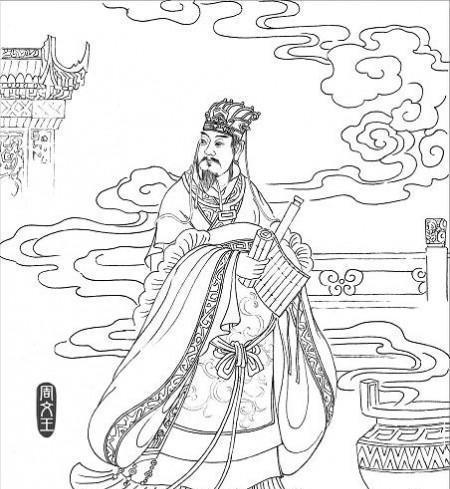The last year of the Shang Dynasty was Xibo, so it was also called "Bochang". Appointing capable people such as Tai Qiang and San Yisheng, implementing the policy of yumin, and the national strength is growing, but it is taboo, imprisoned in Qiangli, during the period of imprisonment, he wrote a book of Zhou Yi. Later, he was released after offering treasures such as "Daughter of the Youxin Clan" and "Wenma of Li Rong" and dredging courtiers. He once resolved the dispute between Yu and Rui, sent troops to attack Inu rong, Misu, Li, and Han, and then destroyed Chong, built the capital city of Fengyi (present-day Huxian County, Shaanxi Province), and expanded his power to the Yangtze River, Hanshui, Rushui and other river basins to prepare for the destruction of the merchants, and it is said that in his later years he had achieved a situation in which "there are two in three parts of the world".

When King Wen was dying, he instructed his second son to make an early attempt to destroy Shang. After succeeding to the throne, he adhered to his father's aspirations. In the eleventh year of his appointment (c. 1046 BC), King Wu saw that the time had come, and sent an army to march to the capital to sing and attack the King of Sui. The two armies fought in Makino, the Shang army was defeated, the king of Lu set himself on fire at "Lutai", and the Shang Dynasty fell.
The Zhou Dynasty was established, and the capital was Set to Hojing (present-day southwest of Xi'an, Shaanxi). King Wu of Zhou first posthumously honored his father as King Wen.
Legend has it that the I Ching and the Bagua of the Day After Tomorrow (also known as the Bagua of King Wen) are written by King Wen (the First Heaven Bagua belongs to the Ancient River Tuluo Book).
King Wen of Zhou himself was good at drinking, "drinking for a thousand bells". When Wu Zetian changed the name of the country to Zhou, he called himself a descendant of King Wen of Zhou and posthumously honored King Wen of Zhou as Emperor Wen.